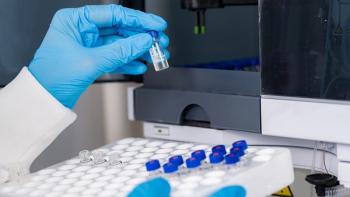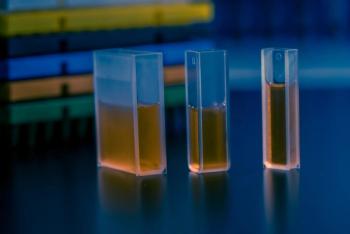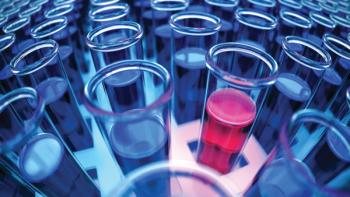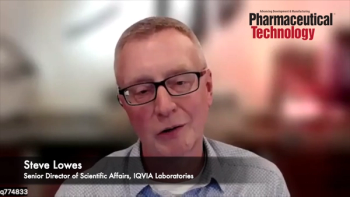
- Pharmaceutical Technology-03-02-2018
- Volume 42
- Issue 3
Improving Operations in the Lab
New and emerging products advance bio/pharma laboratory operations.
Staying up to date on the most advanced technologies is important for improving operational tasks, especially in the laboratory. The following is a sampling of the latest products available to optimize laboratory operations for biological products.
Automated fraction collector
The NGC Fraction Collector from Bio-Rad Laboratories provides flexibility and collection capacity for analytical or preparative chromatography applications when used with the company’s NGC Chromatography System (1). Features include a benchtop Peltier cooling module for temperature-sensitive biomolecules and an optional enclosure to protect samples from environmental conditions while allowing full access during a run. Because the enclosure is optional, the same fraction collector can also be used for reverse-phase chromatography applications.
The unit, which runs on ChromLab 5.0 Software, allows researchers to choose how to collect and when to access their fractions. The system can be activated to collect based on slope, percent of buffer from pump B, pH, and detector signals. According to the company, front-to-back dispensing provides access to fractions before method completion for improved speed of downstream analysis. Researchers can also choose the type of collection vessel they prefer for each phase in a method, including deep-well plates, tubes, bottles, and carboys (with prep-rack adaptors for large-scale purification). Adding two new fraction collectors to each NGC System can further expand capacity, according to a company press release.
Bioreactor control system
Automated Control Concepts’ (ACC) Lab Owl is a bioreactor control and information system that integrates laboratory instrumentation for data collection and analysis for labs using cell culture and fermentation applications (2). Its user-friendly interface can be used with bench-top bioreactors in development labs, in pilot plants, and in manufacturing, according to company. The system is available in flexible and scalable form factors to meet the needs of labs dependent on bioreactors for cell culture and fermentation experiments.
“We’ve discovered that most scientists felt that there had to be a better way to control their experiments and collect and analyze their data,” said ACC CEO Michael Blechman, in a press release. “Lab Owl provides that better way. Developed in collaboration with scientists from several major biotechnology companies, Lab Owl is easy to configure, flexible in control, and integrated with analytical instruments--allowing scientists to focus on innovation.”
Cell counting device
Corning and CytoSMART Technologies, a company spin-off from The Netherlands’ Eindhoven University of Technology that manufacturers ultra-compact, live-imaging systems and cell counters for biological laboratories, have partnered to simplify mammalian cell counting in laboratories (3). The new Corning Cell Counter uses technology developed by CytoSMART and offers enhanced speed for automated cell counting. The device, which is exclusively supplied by Corning, will be available through Corning´s global sales team and worldwide distribution network.
Cell counting is a crucial subcultivation step in the cell-culture workflow, according to the companies. Many laboratories still perform manual cell counting using a hemocytometer or a counting slide viewed under a microscope. In comparison, the Corning Cell Counter returns an accurate and precise digital cell count in a few seconds. The device can accommodate the standard reusable hemocytometer or disposable slides, but microscopic viewing in order to perform the cell count will no longer be needed, as stated by Corning.
Freeze dryer for life-science labs
The Freezemobile freeze dryer from SP Scientific is suited for high-quality preparation of peptides, proteins, plant materials, and organic tissue (4). Unlike many traditional freeze dryers that employ coil condensers, these freeze dryers use a smooth-walled condenser that enables fast defrost and removal of ice for faster turn-around time and also alleviates vapor port ice blockages other systems are prone to, according to the company.
The freeze dryer is offered in 25- and 35-liter condenser sizes and is suitable for labs with multiple users, as well as labs with high quantity of product through-put. The device has a -85 °C condenser to enable the removal of a variety of solvents and can be configured for exact user processing requirements.
Individual samples can be added or removed without interrupting the instrument, thereby enabling users to continue their experimental process without having to wait for another freeze dryer to become available.
The freeze dryer also includes a range of single- and multi-tiered horizontal “T” type manifolds, which can be used to dry multiple flasks simultaneously, and provides an optimized platform for drying large quantities of samples in bulk flask format. To improve the laboratory operating environment, the freeze dryer can also be supplied with a low noise, oil-free vacuum pump, as stated by SP Scientific.
Additionally, the company offers a control system that offers a range of control features to meet the demands of various applications. Vacuum levels, condenser temperature, ambient room temperature, and component status are all displayed on a clear LCD display, while alarms warn of any unwanted process deviations.
The company’s Freezemobile Shell Bath helps to decrease manifold freeze-drying time. The tool rotates sample flask on its axis, thereby coating the interior surface of the flask with frozen product. According to the company, this increases the surface area of the product-to-energy input, as well as vapor removal, helping to reduce the freeze-drying process to the shortest time possible when utilizing flasks and a manifold system.
References
1. Bio-Rad Laboratories, “Bio-Rad Launches NGC Fraction Collector for NGC Chromatography Systems,” Press Release, Jan. 8, 2018.
2. Automated Control Concepts, “New Bioreactor Control System Integrates Lab Instrumentation for Optimal Data Collection and Analysis, and Aims to Liberate Labs From Routine Processes,” Press Release, Jan. 16, 2018.
3. Corning, “Corning and CytoSMART Announce Agreement for Cell Counting Device,” Press Release, Feb. 2, 2018.
4. SP Scientific, “Flexible Freeze Drying for Life Science Labs,” Press Release, Feb. 8, 2018.
Article Details
Pharmaceutical Technology
Vol. 42, No. 3
March 2018
Pages: 58, 69
Citation
When referring to this article, please cite it as A. Lowry, " Improving Operations in the Lab," Pharmaceutical Technology 42 (3) 2018.
Articles in this issue
almost 8 years ago
AR/VR Simulator for Plant Personnel Trainingalmost 8 years ago
Five-Hundred-Gallon Multi-Shaft Mixeralmost 8 years ago
Tackling Medicine Shortages in Europealmost 8 years ago
A New Method for Risk Assessment of Pharmaceutical Excipientsalmost 8 years ago
FDA Heightens Drive for Transparencyalmost 8 years ago
Current Challenges in Bioprocesses Developmentalmost 8 years ago
Dissolved Oxygen Sensoralmost 8 years ago
Twin Screw Extruder Systemalmost 8 years ago
Computerized Systems ValidationNewsletter
Get the essential updates shaping the future of pharma manufacturing and compliance—subscribe today to Pharmaceutical Technology and never miss a breakthrough.




